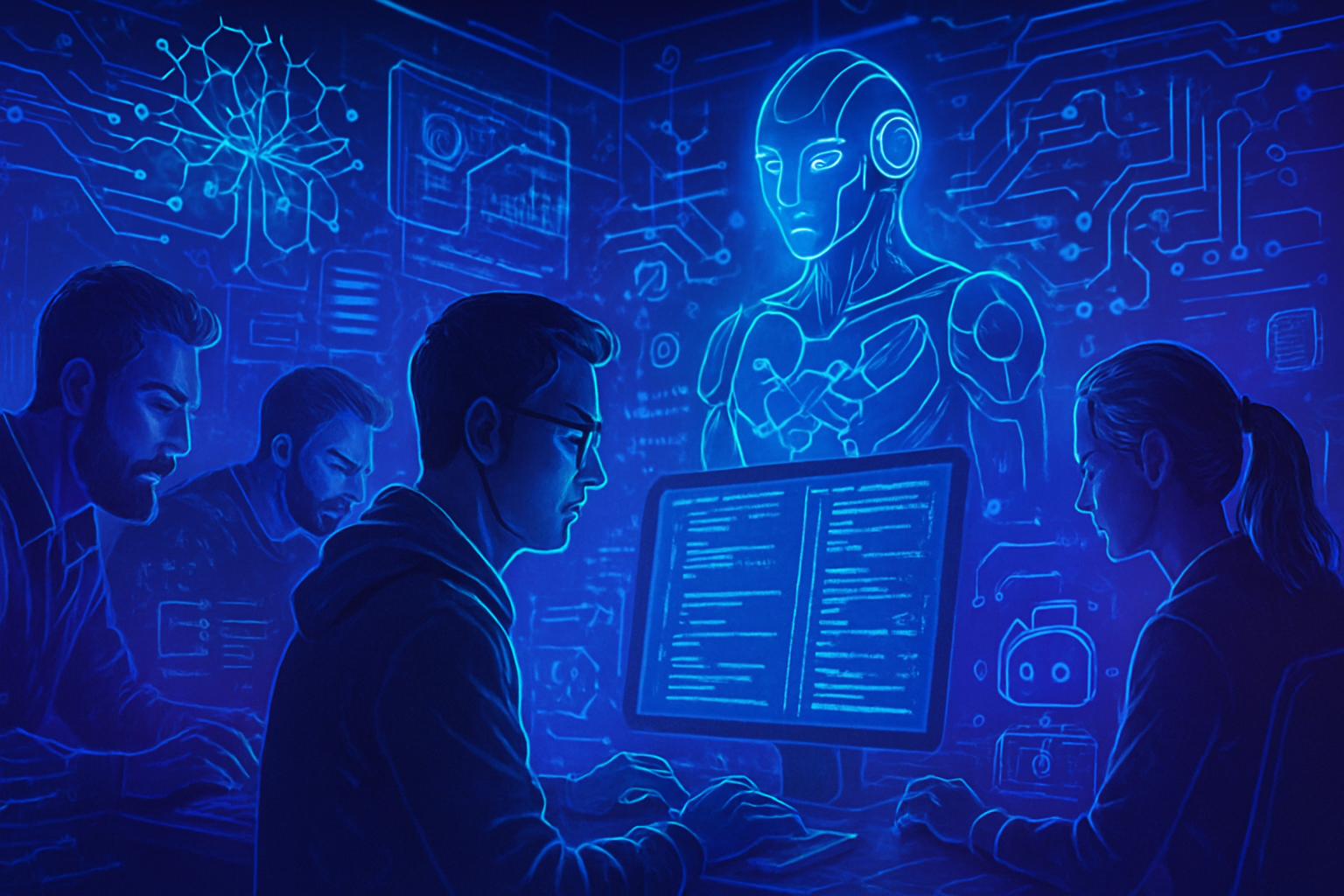Amazon developers are faced with an unprecedented reality: *artificial intelligence* is transforming their working methods. This technological innovation encourages them to *increase production speed* while raising significant questions about the evolution of their professions. Performance expectations are climbing exponentially as the volume of code to deliver continues to grow.
The pressure to code faster is omnipresent. The deadlines, which have become tighter, arouse fears about the future of technical expertise. The skills of engineers are at risk of fading, replaced by a dependence on automated tools. *The impact on work quality* and the career paths of developers is becoming apparent, raising a crucial question: what future for these artisans of code?
Increased pressure on developers
Amazon software engineers are under unprecedented pressure to speed up their work pace. The introduction of artificial intelligence has changed the expectations regarding code production. Deadlines have become significantly shorter, transforming a thoughtful development process into a real challenge of efficiency.
Imposition of new standards
Employees report that the size of their teams has decreased, while the amount of code to produce remains unchanged. One engineer revealed that their team was halved compared to the previous year, despite this constant performance demand.
AI culture in adoption
Developers describe a culture of AI adoption where the use of these tools seems optional, yet proves essential to remain competitive. Ignoring advancements in AI could lead to significant delays and the loss of professional opportunities.
Reductions in feedback sessions
Feedback sessions, which provided essential support to developers, have also been reduced, limiting constructive exchanges. Moreover, expectations regarding visual efficiency create pressure on engineers to allow AI to write substantial chunks of code, even entire programs.
Vision of increased productivity
Andy Jassy, Amazon’s CEO, stated in a letter to shareholders that generative AI serves as a tool to enhance productivity and avoid costs. He emphasized the urgency of delivering results quickly to avoid falling behind the competition.
The impacts on professional development
Many engineers are concerned about the consequences of this automation. The former tasks of writing memos and testing software, once seen as learning steps, are increasingly being assigned to AI. This raises questions about the loss of essential skills for young professionals.
A growing concern within Amazon
Initiatives like Amazon Employees for Climate Justice reflect employees’ concerns about the evolution of their careers within the company. These complaints highlight doubts regarding work quality and professional growth in this context of increased dependence on AI.
Parallels with warehouse transformation
Developers draw comparisons with the transformation of jobs in Amazon’s warehouses. Automation has reduced the need for physical movements in favor of increased efficiency, but it has also made positions more monotonous.
Internal tools and innovation
Amazon’s management encourages teams to develop new internal AI tools during hackathons. This aims to foster innovation while regularly monitoring workloads to prevent burnout.
Questions and answers about the work of Amazon developers in the face of artificial intelligence
What are the main pressures exerted by artificial intelligence on Amazon developers?
Developers claim they must code more quickly, meet higher production goals, and use AI tools that they do not fully control.
How has the introduction of AI affected the size of development teams at Amazon?
Many developers note that their teams are smaller than before, but production expectations remain the same, increasing pressure on each member.
Are there concerns about the quality of work due to increased AI-related demands?
Yes, some employees worry that the quality of their work is declining, as strict deadlines can lead to programs being written too quickly without thorough review.
Do developers have a choice in using AI tools in their work at Amazon?
Technologically, the use of AI tools is optional, but it is often perceived that those who do not use them risk falling behind their colleagues.
What risks do developers face by automating tasks that were once formative with AI?
Automated tasks that served as learning paths for junior developers could diminish their opportunities to acquire essential skills and advance in their careers.
How does Amazon justify the integration of AI into the coding process?
Amazon views AI as a tool enhancing productivity and avoiding costs, claiming that it allows them to respond quickly to customer expectations.
What impact does AI have on feedback and code review sessions?
Feedback sessions are often shortened, and developers are pressured to let AI not only suggest lines of code but also write complete programs.
Are Amazon employees concerned about the changes to the nature of their work?
Yes, there is a growing concern among employees about how these changes will affect the quality of their work and their professional future.
Do promotion paths at Amazon remain clear with the increased use of AI?
Amazon asserts that its promotion paths remain performance-based, but some employees fear that automation may limit their opportunities to demonstrate their skills.
How do developers perceive the analogy between their work and that of Amazon warehouse employees?
Many developers see parallels, noting that their work is becoming increasingly repetitive and standardized, similar to the work of warehouse employees, who seem to be losing variety in their work due to automation.






